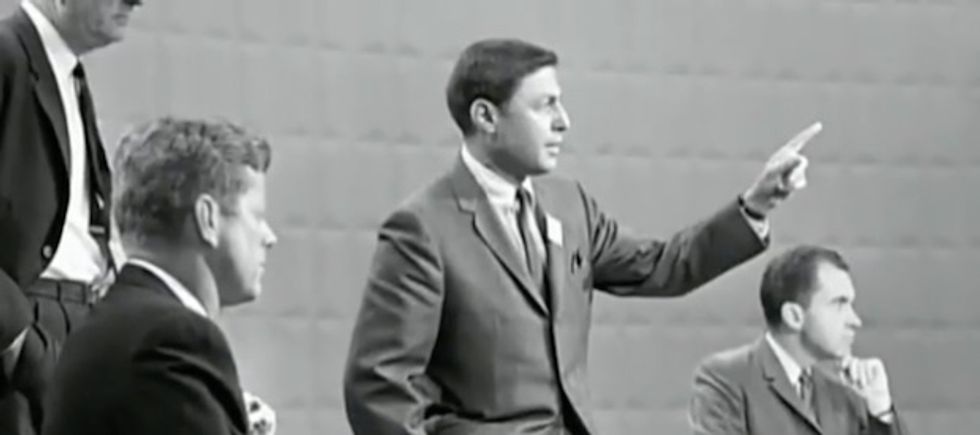
Image source: YouTube

Was tonight's debate between Hillary Clinton and Donald Trump intentionally scheduled to happen on the anniversary of the first televised debate between American presidential candidates? Or was it just a coincidence?
Sept. 26, 1960, was the night more than 66 million Americans tuned in to watch Republican Vice President Richard Nixon face off against Democratic Sen. John F. Kennedy in the first of four presidential debates that year. No debates between the vice presidential candidates were held in 1960.
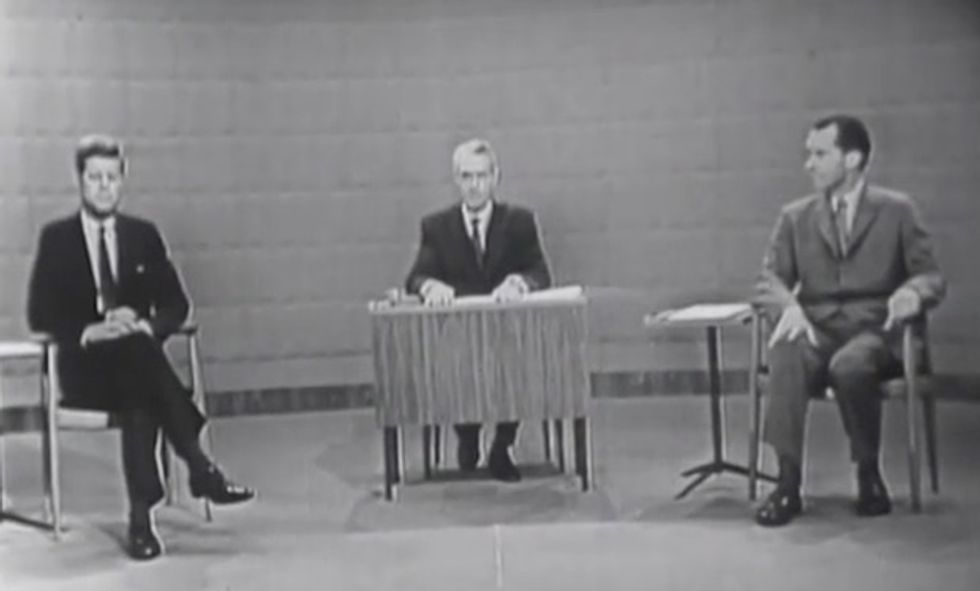
The date may be the only thing these two presidential debates share. In 1960, there was no studio audience in the sparsely decorated television studio in Chicago. Nixon and Kennedy faced off for an hour with legendary newsman Howard K. Smith as moderator. The topic was domestic policy.
The questions for the candidates came from a panel of four journalists: Sander Vanocur of NBC News, Charles Warren from Mutual News, Stuart Novins of CBS and ABC News' Bob Fleming.
Each candidate was allowed an opening statement up to eight minutes in length. Closing statements were limited to just three minutes. Responses to questions were to be no longer than two-and-a-half minutes. A candidate's response to his opponent's answer was optional.
Kennedy was first to deliver an opening statement. Despite the focus on domestic issues, Kennedy talked about the Soviet Union's recent growth and the importance of America being strong in order to compete with communism.
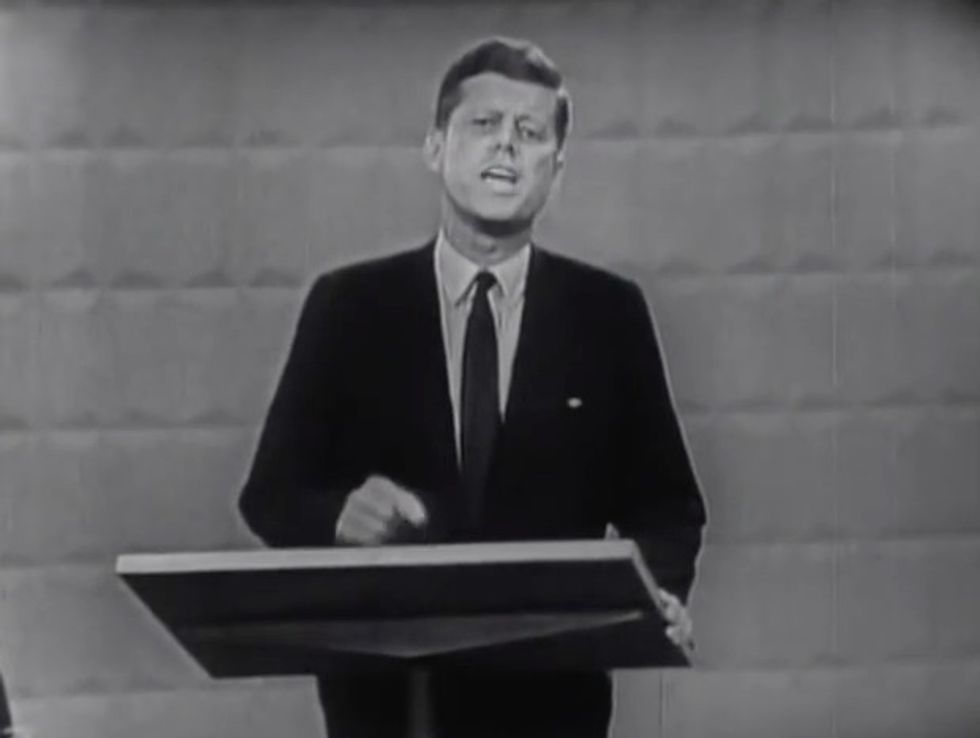
Speaking about the role of government in the lives of Americans, the Democratic candidate spotlighted social programs like Social Security and food stamps before stating, "I don't believe in big government. But I believe in effective governmental action," Kennedy said.
Kennedy also tied the importance of American democracy succeeding to the cause of freedom around the globe, "If the United States fails, then the whole cause of freedom fails."
Nixon's opening remarks also focused on America's position in the international community, especially against the Soviet Union and China.
Nixon rattled off a litany of economic statistics meant to contrast the success happening under the Republican Eisenhower administration with previous Democratic administrations and stressed that his party cared as much for the poor and impoverished as his opponent and the Democrats did.
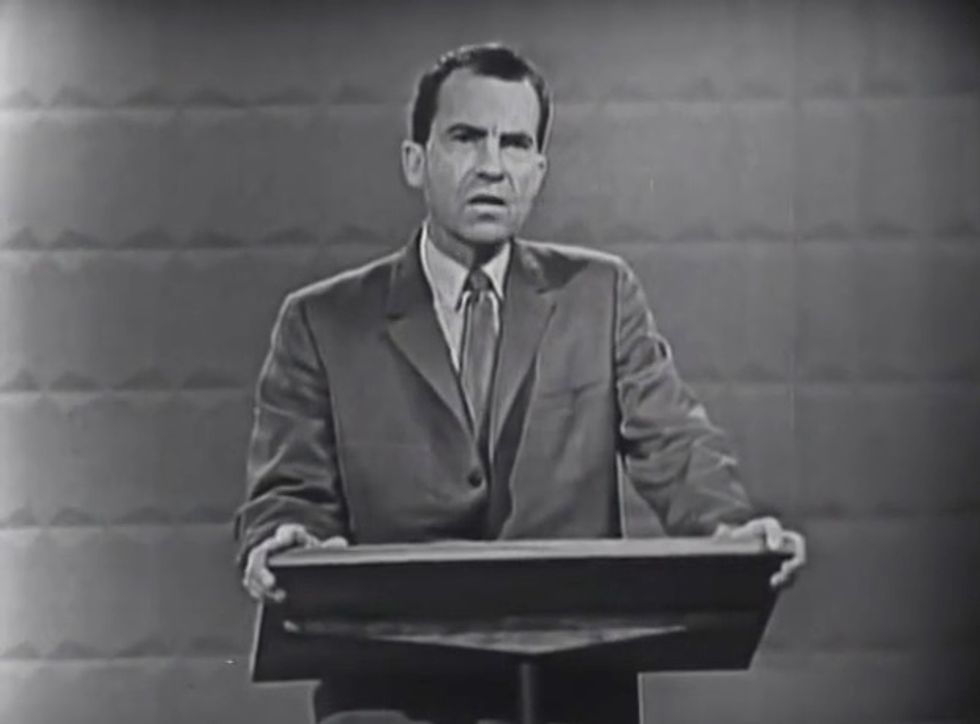
Kennedy received the first question from ABC's Bob Fleming: "Senator, the vice president and his campaign have said you are 'naive' and at times, 'immature,' you have raised the question of leadership. On this issue, why do you think people should vote for you, rather than the vice president?"
Kennedy, still seated, began to answer the question. Moderator Smith directed the candidate to the lectern and Kennedy continued responding as he stepped to the appointed position and compared his experience with Nixon's, reminding the audience, "The vice president and I came to Congress together. I've been there now 14 years, the same period he has."
Turning his answer to policy, Kennedy urged the audience to consider the differences between the candidates by asking, "What are the programs that we advocate?" before pointing out Republican opposition to funding social programs such as education, medical care for senior citizens and "development of our natural resources."
After framing the GOP as the party that blocked funding government assistance, Kennedy went on to claim, "I think Mr. Nixon is an effective leader of his party."
Nixon chose not to respond to Kennedy's answer.
Stuart Novins of CBS asked the first question of Nixon: "Mr. Vice President, your campaign stresses the value of your eight-year experience, the question rises as to whether that experience was as an observer or as a participant or as an initiator of policy making. Would you tell us, please, specifically what major proposals you have made in the last eight years that have been adopted by the administration?"
Nixon replied that wouldn't be possible to cover all of the policy proposals he'd made during Eisenhower's two terms in a short answer. However, he did summarize a series of proposals he had made following trips to Europe and South America.
Curiously, the topics addressed in the closing statements delivered by each candidate sound as if they might be coming from the 2016 candidates. Nixon argued against too much government spending, while Kennedy touted a plan to force senior citizens to purchase health insurance from the government and promised a "better life for our citizens."
Perhaps the most important issue from the first debate had nothing to do with the substance of the responses from the candidates, but how they appeared on television.
Within minutes of standing under the hot television lights, Richard Nixon's face showed sweat more than Kennedy's face did. Time magazine reported on the debate, saying, "Kennedy was alert, aggressive and cool."
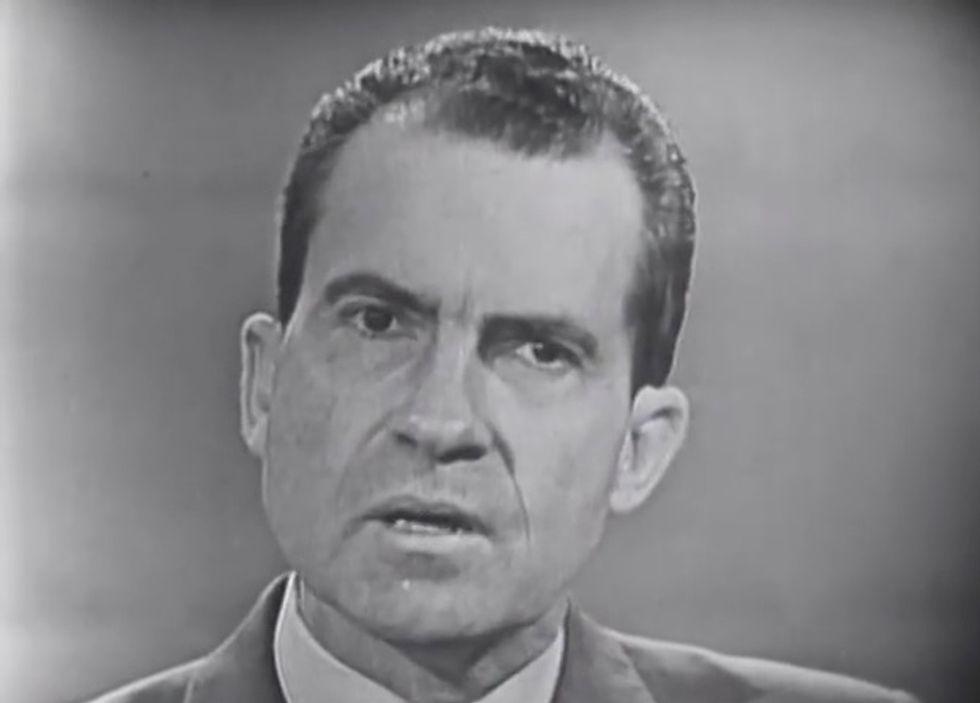
The difference in the appearance of the candidates was not lost on the television audience or the CBS producer of the event, Don Hewitt. "People who heard it on radio thought Nixon won. People who watched it on television knew Kennedy won," Hewitt said.
Watch the entire debate:
—
Follow the author of this story on Twitter and Facebook: